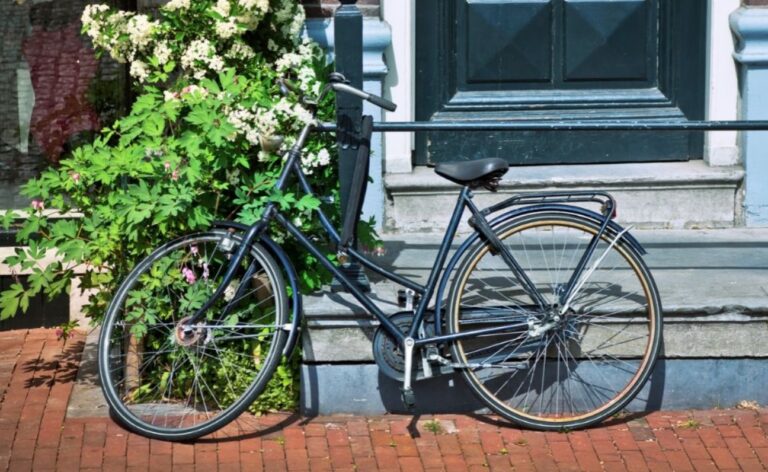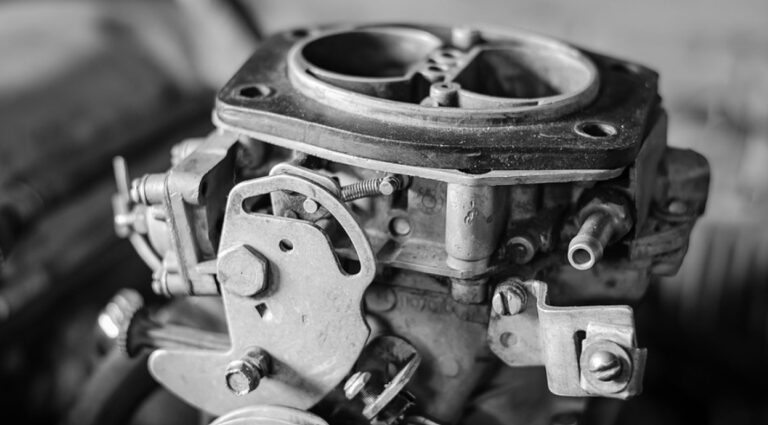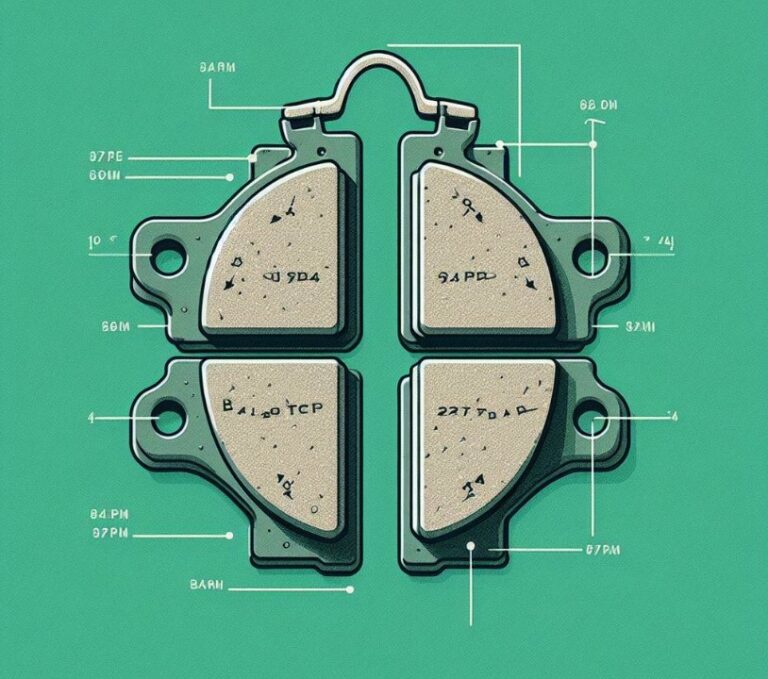How To Tell If A Dirt Bike Is Stolen? Explained
Understanding How To Tell If A Dirt Bike Is Stolen? is crucial for both buyers and sellers in the dirt bike market. With the rise in popularity of off-road biking, the market for used dirt bikes has expanded, unfortunately, accompanied by an increase in bike thefts. Identifying a stolen dirt bike involves checking various indicators, from physical alterations to the seller’s credibility. Let’s dive into the essential aspects that help discern a bike’s legitimacy.
Key Takeaways
- Check the bike’s VIN and cross-reference it with national databases.
- Inspect for tampered or missing identification numbers.
- Be aware of the seller’s behavior and verify their ownership history.
- Look for signs of rushed or recent paintwork.
- Consult online stolen bike registries and local law enforcement.
How To Tell If A Dirt Bike Is Stolen?
A straightforward approach to determining if a dirt bike is stolen involves several steps:

VIN Checks
Vehicle Identification Number (VIN) is a unique code assigned to every motor vehicle. It’s essential in identifying a dirt bike’s history.
- Cross-Referencing VIN: Begin by locating the VIN, typically found on the bike’s frame. Cross-reference this number with national databases like the National Insurance Crime Bureau (NICB) or local DMV records. These databases can reveal if the bike has been reported stolen.
- VIN Tampering: Look for signs of tampering. Altered or scratched-off VINs are a red flag. It suggests attempts to hide the bike’s identity.
Seller Verification
The seller’s behavior and background can provide clues.
- Ownership Proof: Request documentation proving ownership. Genuine sellers usually have titles or purchase receipts.
- Seller’s Behavior: Be cautious if the seller avoids questions, rushes the sale, or offers a deal that seems too good to be true.
Physical Inspection
Inspect the bike for physical alterations that might indicate theft.
- ID Numbers: Check for missing or altered engine numbers. Thieves often tamper with these to avoid identification.
- Paint and Stickers: Look for recent paintwork or sticker placements that might be covering original marks or numbers.
Online and Local Resources
Utilize online and local resources for additional verification.
- Stolen Bike Registries: Websites like BikeRegister or local online forums often list stolen bikes. Comparing the bike in question with these listings can be informative.
- Law Enforcement: Contacting local law enforcement can provide information on reported bike thefts in the area.
Signs of a Stolen Dirt Bike
Recognizing the signs of a stolen dirt bike can save you from legal and financial troubles.

Altered Appearance
Altered appearances are a common tactic to disguise a stolen bike.
- Fresh Paint: Fresh paint, especially over the VIN or engine numbers, is suspicious. It can indicate an attempt to hide the bike’s true identity.
- Mismatched Parts: Mismatched or non-original parts can suggest the bike has been pieced together from various sources, possibly stolen ones.
Seller’s Reluctance to Provide Information
A seller’s reluctance to share information is a significant red flag.
- Vague History: Be wary if the seller cannot provide a clear history of the bike or seems evasive about its origins.
- No Paperwork: Lack of proper documentation like ownership papers or service records is concerning.
Legal Implications
Buying a stolen dirt bike can have serious legal repercussions.
Ownership Disputes
If the bike is proven stolen, you may lose both the bike and the money you paid for it.
- Legal Action: The original owner may take legal action to recover the bike.
- Loss of Investment: You risk losing your investment and may face legal consequences for possessing stolen property.
Protecting Yourself Legally
Take steps to protect yourself when purchasing a used dirt bike.
- Documentation: Always get a bill of sale and other relevant documents during the purchase.
- Professional Inspection: Consider having the bike inspected by a professional mechanic or a law enforcement officer experienced in identifying stolen vehicles.
Market Trends and Risks
The market for dirt bikes has its trends and associated risks.
Rising Popularity of Dirt Biking
The growing popularity of dirt biking has led to an increased market for both new and used bikes.
- Demand for Used Bikes: Higher demand means more opportunities for thieves to sell stolen bikes.
Prevalence of Bike Theft
Bike theft is a common issue in many regions, making vigilance essential.
- High-Theft Areas: Be extra cautious if you are in an area known for bike theft.
How Can I Check If A Bike Is Stolen?
Checking if a bike is stolen involves a few critical steps. Firstly, obtain the bike’s VIN (Vehicle Identification Number) and engine number. These can be cross-referenced with various databases.
For instance, the National Insurance Crime Bureau (NICB) in the United States offers a free VIN check service, which can reveal if a bike has been reported as stolen or salvaged.

Additionally, local law enforcement agencies or the Department of Motor Vehicles (DMV) can also assist in verifying the bike’s status. Another effective method is to use online stolen bike registries or forums, where victims of theft often list their stolen bikes.
Besides these checks, evaluating the seller’s behavior and the bike’s physical condition, like signs of tampering or altered identification numbers, is essential. Always insist on proper documentation and a detailed history of the bike before making a purchase.
Can You Look Up Dirt Bike VIN Numbers?
Yes, you can look up dirt bike VIN numbers. A VIN, or Vehicle Identification Number, is a unique code assigned to every motor vehicle, including dirt bikes.
This number can be used to access a wealth of information about the bike’s history. Websites like the National Insurance Crime Bureau (NICB) offer free VIN checks.
These checks can provide information on whether the bike is stolen or has been involved in any accidents. Additionally, manufacturers and some third-party websites also offer services to decode VINs, providing details about the bike’s make, model, and year of manufacture.
It’s a crucial step for prospective buyers to ensure the legality and legitimacy of the dirt bike they intend to purchase.
Where Is The VIN Number On A Dirt Bike?
The VIN number on a dirt bike is typically located on the frame, often on the front of the bike. The most common place to find it is on the steering neck, which is the part of the frame right below the handlebars. In some models, it might be located on the motor near the bottom of the cylinder.

It’s essential to know the VIN location as this number is vital for identifying and verifying the bike’s history. The VIN is usually a 17-character code that includes numbers and letters.
If you have trouble locating the VIN, consult the bike’s manual or contact the manufacturer for guidance.
How Do You Tell What Year A Dirt Bike Is By The VIN Number?
To determine the year of a dirt bike by its VIN number, you need to decode a specific character within the VIN. Typically, the 10th character in the 17-character VIN represents the model year of the bike.
This character will be a letter or number. Each year has a corresponding code: for example, a bike with a VIN where the 10th character is ‘J’ might be from 2018. There are standardized charts available that match each letter or number to a specific year.
It’s important to note that this coding system started in 1980; for bikes manufactured before this year, the VIN may not provide a clear indication of the year.
Conclusion
Determining if a dirt bike is stolen involves vigilance, awareness of warning signs, and thorough verification. By understanding these key aspects, buyers can make informed decisions and avoid the pitfalls of inadvertently purchasing stolen property. Remember, the integrity of your purchase not only protects you legally and financially but also deters the market for stolen bikes.
Frequently Asked Questions
What are the risks of buying a dirt bike from an online marketplace?
Online marketplaces can harbor stolen bikes due to the anonymity they provide sellers. Risks include buying a stolen bike, lack of proper documentation, and difficulty verifying the bike’s history. Always exercise caution and perform thorough checks before purchasing.
Should I get a professional inspection before buying a used dirt bike?
Yes, getting a professional inspection is highly recommended. A professional can spot signs of theft or tampering that you might miss.
How do I verify a dirt bike’s history with the seller?
Ask the seller for the bike’s service records, history of ownership, and the reason for selling. Cross-check their responses with the bike’s physical condition and paperwork.
What paperwork should I expect when buying a used dirt bike?
When buying a used dirt bike, expect to receive the title of ownership, purchase receipts, and a detailed service history. A bill of sale is also crucial for your records.

Welcome to the exhilarating world of Matt Rex, a professional car racer turned renowned vehicle enthusiast. Immerse yourself in his captivating blog as he shares heart-pounding adventures, expert reviews, and valuable insights on cars, trucks, jets, and more. Fuel your passion for speed and discover the beauty of vehicles through Matt’s engaging stories and meticulous expertise. Join the ever-growing community of enthusiasts who find inspiration and expert advice in Matt Rex’s blog—a digital hub where the thrill of speed meets the pursuit of knowledge.







